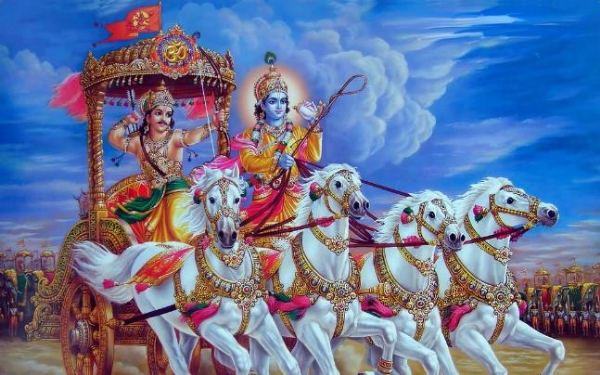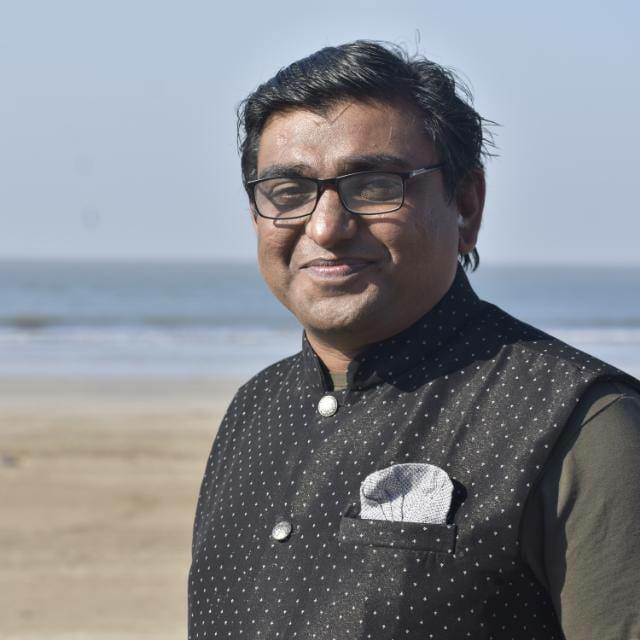The Bharatiya Way of Connecting the World
India will prosper again if we return to our roots and follow a development model that is based on equanimity, ethical values, nurturing and balancing the environment, and most importantly, joyfully, happily, and peacefully.
Total Views |
Since the last few decades, there has been a tremendous change in everyone's life and lifestyle. Technological advancements, such as the use of automated machines, vehicles, computer and information technology-based equipment and software, have given life a new dimension. It is fascinating to see how the external world is changing without much physical strenuous work, at a rapid pace; everyone is striving for asset creation. However, we lost something called peace, joy, and happiness in the process. Isn't that right? Everything we do has the ultimate goal of making us happy, joyful, and peaceful; the question is, "Are we HAPPY, JOYOUS, AND PEACEFUL?"
Actually, studies by various research organisations clearly show that, while we are rising exponentially in the external world, the opposite is true for individuals' peace, happiness index, and mental and social health. We should have been happier, contented, joyful, and peaceful as we saw the comforts of life with more bank balance and better facilities. However, this is not the case; what could be the reasons for this?

According to the study, mental health is a global crisis, with developed countries bearing the brunt of the burden. Even though the majority of its population lives in luxury, the global superpower USA has a poor record on mental health. Many European countries, as well as many Asian countries, including India, are affected. Not only are depression and anxiety on the rise, but so are suicidal thoughts and suicides. There is nothing wrong with achieving financial success, building assets, and having lofty goals; however, we have forgotten an important aspect of life balance that Indian culture had in the past and that many Indians still adhere to it today.
Let us look at the factors that made Bharat prosperous socially, economically, and technologically, with a rich heritage, knowledge, skills, and technology, and a joyous and happy life with better environmental practises prior to the Mughal invasion.
To understand this phenomenon, we must go back a few centuries. When British and a few European nations travelled around the world for business and even took over territories for their own benefit and power. India was also one of them. They were successful in changing people's mindsets and thought processes. Changes in the educational system resulted in significant changes in social and economic behaviour, as well as in the approach to development. However, the European development model has significant drawbacks and outputs, which are listed below.
People started seeing success in the failures of others. Definition of success changed to money power, muscle power. Satisfying ego has become the priority.
• Wealth creation has become more important than ethics, stability in society and environment.
• Natural resources are taken for granted, misused heavily resulted in depletion, heavy damage to environment.
• Physical, mental and social health has taken a backseat causing lot of nuisance in society and the world.
• Greed has taken the front seat forgetting that we owe to society and nature.
• Unhealthy competition to grab power, money.
• Taking over territory, destroying heritage with fabricated narratives, and discrimination based on caste and colour.
• Excessive comfort had a negative impact on health.
• Loss of fighting spirit as a result of too much comfort zone.
• Research and development is being used with malicious intent in order to become powerful and reap extraordinary financial benefits.
• Ignoring the eternal truths of life.
• A corrupt mindset led to corruption and violence....
Before the Mughal invasion, India had a diverse culture, a superior education system, and a thorough understanding of various techniques and best practises for nurturing and balancing the environment. People used to be unconditionally happy, joyful, and mostly peaceful. They had no ulterior motives or bad intentions because their culture taught them to value "Unity in Diversity." Worshipping and nurturing all aspects of nature, biotic and abiotic, was inherited and prominent. Whether you believe in God or are an atheist, you were treated equally. They were not only concerned with individual health, but they were also very advanced in science and technology for the time. Few to mention are medicines, surgery, sculpture, metallic structures, water conservation, shipbuilding, town planning, administration, economics, yoga and meditation techniques, and the construction of forts and temples with the utmost creativity and skill.

The Vedic literature and the Bhagavad Gita assure us that we are on the right track by instilling human values, growing materially and spiritually in all aspects of life, and nurturing the environment. It equally respects all religions and sects; you will not find a single line against any religion or culture; rather, it believes in connectivity with belongingness in order to grow mutually. As a result, there isn't a single instance where India has seized territory from another country or forced people to convert to Sanatan Dharma.
The most difficult aspect of life is managing one's mind, understanding one's ego, sharpening one's intellect, developing memory, and comprehending one's soul. Gita and Vedas provide us with deeper understandings of everything as well as right solutions that can be practised on a daily basis with ease in order to remain happy, healthy, and progress in life in order to achieve goals and do something better for society.
The Bhagavad Gita offers solutions for dealing with complex situations and projects in a joyful and easy manner. The Bhagavad Gita includes important aspects such as developing leadership qualities, distinguishing between right and wrong ways of life, Dharma and Adharma, and so on.
The European Union has stated in the United Nations that if the European model has not improved their situation, what is the point of asking other nations to implement it in their country? Allow each nation to follow their own culture.
Indians must recognise that our development model is far superior and more proven than the European model. India will prosper again if we return to our roots and follow a development model that is based on equanimity, ethical values, nurturing and balancing the environment, and most importantly, joyfully, happily, and peacefully.
Let us rediscover our roots and broaden our horizons.


